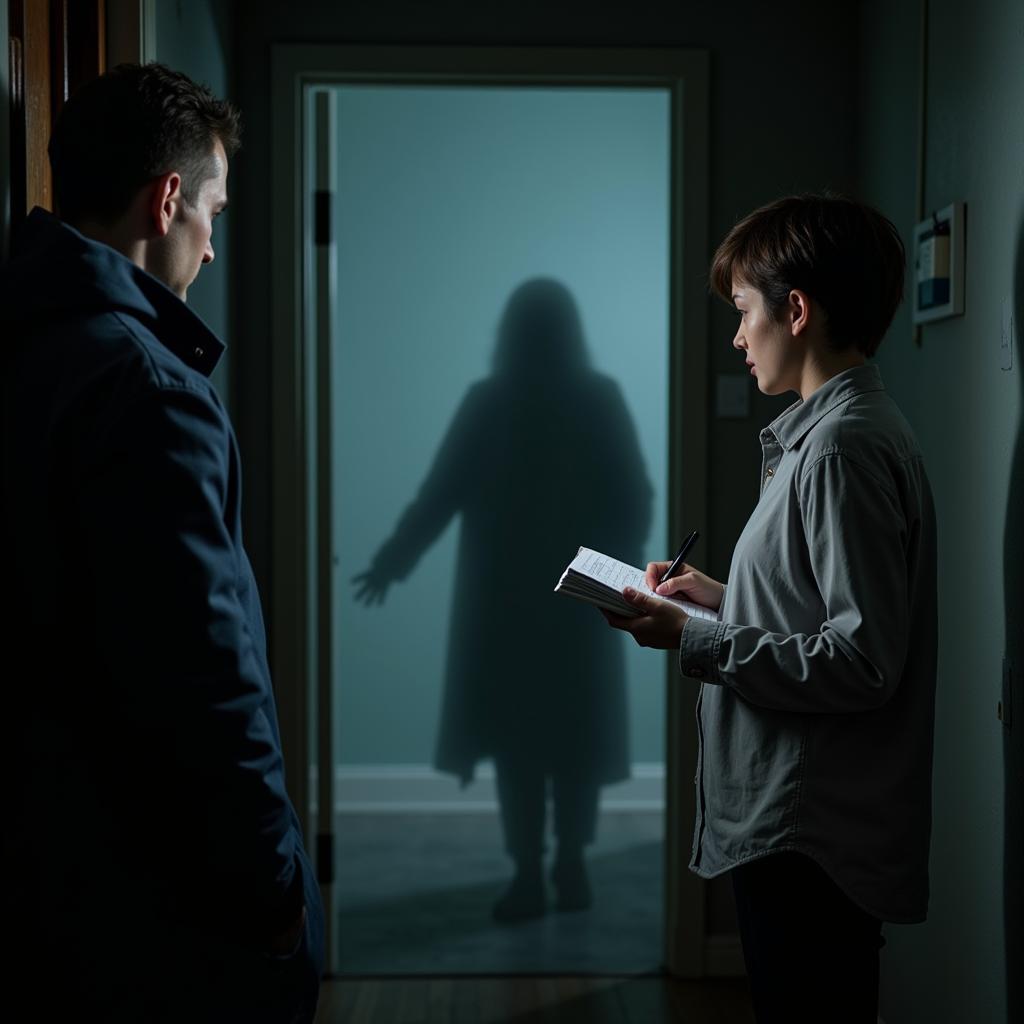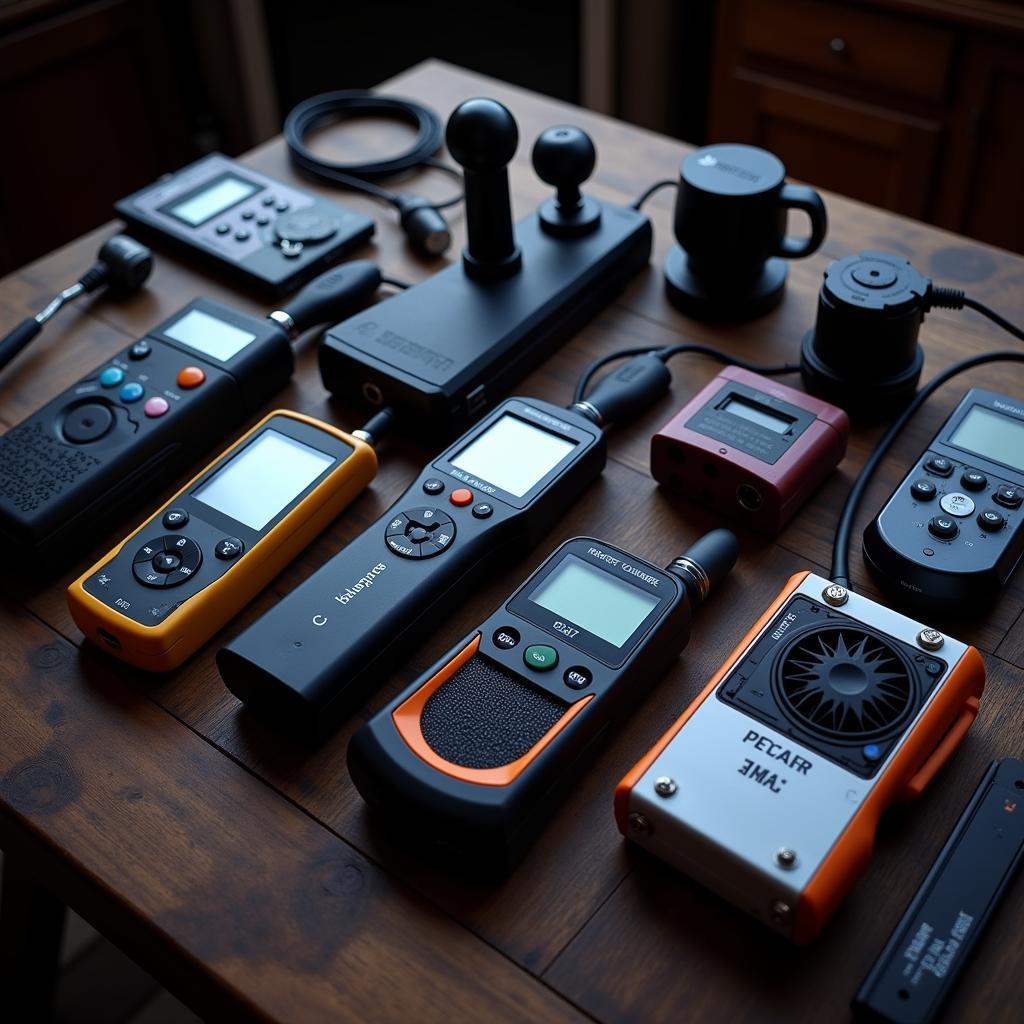The realm of paranormal research, while captivating and shrouded in mystery, is not exempt from the ethical considerations that govern any scientific endeavor. In fact, the unique nature of studying unexplained phenomena, often dealing with vulnerable individuals and sensitive information, amplifies the need for stringent ethical guidelines, especially concerning the researcher’s failure to protect research subjects.
 Paranormal Research Ethics Dilemma
Paranormal Research Ethics Dilemma
The Vulnerable Nature of Paranormal Research Subjects
Individuals seeking answers to unexplained experiences in their lives are often in a vulnerable state. They may be grappling with fear, confusion, or even trauma. This vulnerability makes them susceptible to potential exploitation or harm if researchers are not cautious and empathetic in their approach.
For instance, someone who believes their house is haunted might be easily persuaded to participate in an investigation that involves potentially dangerous activities, especially if the researcher presents themselves as an authority figure. The researcher, driven by the pursuit of evidence, might overlook the potential psychological distress or even physical danger they are exposing the subject to.
The Importance of Informed Consent
A cornerstone of ethical research, informed consent, becomes even more critical in paranormal investigations. Subjects need to fully comprehend the nature of the research, the potential risks involved, and the voluntary nature of their participation.
This includes clearly explaining that:
- No guaranteed outcomes: There’s no certainty of proving or disproving paranormal activity.
- Psychological impact: The investigation itself can trigger anxiety, fear, or emotional distress.
- Confidentiality: How their identity and experiences will be handled and potentially shared.
The researcher must ensure the subject fully understands these points and is not pressured or coerced into participating. This is especially crucial when dealing with individuals experiencing mental health issues or those susceptible to suggestion.
The Power of Suggestion and the Placebo Effect
Paranormal research often deals with subjective experiences and interpretations. The act of investigation itself, with its equipment and methodologies, can create a powerful placebo effect. Subjects may unconsciously (or consciously) alter their behavior or reporting to align with what they believe the researcher expects.
This is where the researcher’s responsibility to remain objective and unbiased becomes paramount. Leading questions, suggestive language, or even subtle cues from the researcher can influence a subject’s perception and experiences, compromising the integrity of the investigation.
 Paranormal Investigation Equipment
Paranormal Investigation Equipment
Protecting Privacy and Confidentiality
Respecting the privacy and confidentiality of research subjects is crucial in any research field, but it takes on added significance in the often-stigmatized realm of the paranormal. Subjects might be reluctant to share their experiences for fear of ridicule, social stigma, or even professional repercussions.
Researchers must establish clear protocols for:
- Anonymity: Protecting the identities of subjects in all documentation, recordings, and publications.
- Data security: Securely storing data collected during investigations to prevent unauthorized access or breaches.
- Sharing findings: Obtaining explicit consent before sharing any personal experiences or data, even anonymously.
The Researcher’s Responsibility: Ethical Considerations
The pursuit of knowledge should never come at the expense of an individual’s well-being. Here are some ethical considerations for paranormal researchers:
- Self-reflection: Researchers should critically examine their own biases, beliefs, and motivations to avoid influencing outcomes.
- Collaboration: Seeking guidance from mental health professionals, ethicists, or experienced researchers can provide valuable perspectives and ensure responsible practices.
- Transparency: Openly communicating methodologies, limitations, and potential risks to subjects fosters trust and allows for informed decision-making.
- Debriefing: Providing subjects with opportunities to discuss their experiences, address concerns, and receive appropriate support after an investigation is essential.
The researcher’s failure to protect research subjects can have lasting consequences, both for the individuals involved and the credibility of paranormal research as a field. By adhering to ethical principles and prioritizing the well-being of those who contribute to their investigations, paranormal researchers can ensure responsible and meaningful exploration of the unknown.
FAQs about Ethical Concerns in Paranormal Research
1. What are some common ethical dilemmas faced in paranormal research?
Paranormal researchers often face dilemmas related to informed consent, potential psychological harm, privacy concerns, and the influence of personal beliefs on investigations.
2. How can researchers ensure the privacy of their subjects, especially when dealing with sensitive information?
Anonymity, secure data storage, and obtaining explicit consent before sharing any personal information are crucial steps in protecting subjects’ privacy.
3. Is it ethical to involve individuals with mental health conditions in paranormal investigations?
This is a complex issue, and researchers must exercise extreme caution. Informed consent, a thorough assessment of the potential risks, and collaboration with mental health professionals are essential.
4. How can researchers mitigate the influence of their own beliefs and biases on their findings?
Self-reflection, transparency in methodologies, and seeking external perspectives from peers or mentors can help minimize bias in paranormal research.
5. What resources are available to paranormal researchers who want to learn more about ethical guidelines?
Organizations like the Parapsychological Association and the Society for Psychical Research offer ethical guidelines for researchers. Consulting with ethicists or experienced researchers is also recommended.
For further information on ethical considerations in Paranormal Research, please refer to our research briefing example.
If you have any questions or concerns about the researcher’s failure to protect research subjects, please contact us at 0904826292, email us at research@gmail.com, or visit our office at No. 31, Alley 142/7, P. Phú Viên, Bồ Đề, Long Biên, Hà Nội, Việt Nam. Our team is available 24/7 to assist you.